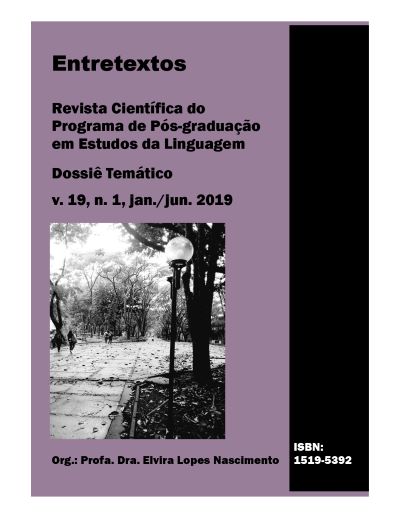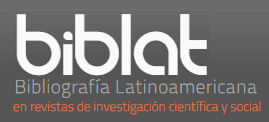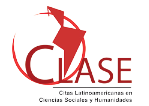Style and Types of Discourse on a TV Report of the Genre Electronic Magazine
DOI:
https://doi.org/10.5433/1519-5392.2019v19n1p207Keywords:
Genre, Style, Report, Social-Discursive InteractionismAbstract
The choice of a genre is among the initial stages of the textual creation process and is closely connected to the development of the author's individual style. Utterances may show different levels of expressiveness and distinct intonations according to the choice of the genre, since some are more inclined than others to the individual style. In this article we will analyze excerpts from a television report of the genre Electronic Magazine, in order to identify language resources that reveal the intentions of the communication act and its effects on expressivity. We will employ two distinct theoretical bases in order to compare their dissonant and complementary aspects, by observing stylistic aspects according to Jakobson's communication scheme (1969) and also the classification according to the types of discourse in the framework brought by Bronckart (2003). We will follow the concept of genre defined by socio-discursive interactionism. An inductive empirical methodology will be used, observing the particularities of the text to find possible patterns. We intend to relate predominant and secondary characteristics, verifying their alignment with the premises of the genre and the individual style traits. We will point out to the multiplicity of functions and intentions of the utterance that overlap themselves in a hierarchical way, but hardly fit entirely plastered formulas.
Downloads
References
ARONCHI, José Carlos. Roda dos gêneros da televisão digital interativa ferramenta para o desenvolvimento de novos gêneros e formatos de conteúdo para multiplataformas digitais interativas. In: INTERCOM – SOCIEDADE BRASILEIRA DE ESTUDOS INTERDISCIPLINARES DA COMUNICAÇÃO, 18., 2013, Bauru. Anais [...]. Bauru, 2013. Disponível em: portalintercom.org.br/anais/sudeste2013/ resumos/R38-1719-1.pdf. Acesso em: 5 dez. 2016.
BAKHTIN, Mikhail Mjkhailovitch. Os gêneros do discurso. In: BAKHTIN, Mikhail Mjkhailovitch. Estética da criação verbal. Tradução de Maria Ermantina Galvão G. Pereira. 2. ed. São Paulo: Martins Fontes, 1997. p. 278-326.
BRIDI, Sônia. Terra, que Tempo é Esse? Fantástico, Rio de Janeiro, 17 out. 2010. Disponível em: https://glo.bo/2LqT8xw/. Acesso em: 9 maio 2019.
BRITO, Diná Tereza de; PANICHI, Edina Regina Pugas. Crimes contra a dignidade sexual: a memória jurídica pela ótica da estilística léxica. Londrina: Eduel, 2013.
BRONCKART, Jean Paul. Atividade de linguagem, textos e discursos: por um sócio-interacionismo-discursivo. Tradução de Anna Rachel Machado, Péricles Cunha. São Paulo: EDUC, 2003.
CHALHUB, Samira. Funções da linguagem. 12. ed. São Paulo: Ática, 2006. GLOBO. Fantástico: o Programa. 2015. Disponível em: https://bit.ly/3rpmGe5. Acesso em: 9 maio 2019.
GOMES, Itania Maria Mota. Estabilidade em fluxo: uma análise cultural do Jornal Nacional, da Rede Globo. In: GOMES, Itania Maria Mota Gomes (org.). Análise de telejornalismo: desafios teórico-metodológicos. Salvador: EDUFBA, 2012. p. 39-58.
GOMES, Itania Maria Mota. Metodologia de análise de telejornalismo. In: GOMES, Itania Maria Mota (org.). Gêneros televisivos e modos de endereçamento. Salvador: EDUFBA, 2011. p. 17-48.
JAKOBSON, Roman. Linguística e comunicação. Tradução de Izidoro Blikstein e José Paulo Paes. São Paulo: Cultrix, 1969.
MARTINS FILHO, Eduardo Lopes. Manual de redação e estilo de O Estado de S. Paulo. 3. ed. São Paulo: O Estado de S. Paulo, 1997.
MARTINS, Nilce de Sant´Anna. Introdução à estilística: a expressividade na língua portuguesa. São Paulo: EDUSP, 2008.
NASCIMENTO, Elvira Lopes; CRISTOVÃO, Vera Lúcia Lopes. Gêneros textuais e ensino: contribuições do interacionismo sócio-discursivo. In: KARWOSKI, Acir Mario; GAYDECZKA, Beatriz; BRITO, Karin S. Gêneros textuais: reflexões e ensino. Rio de Janeiro: Lucerna, 2006.
NASCIMENTO, Elvira Lopes; GONÇALVES, Adair Vieira. A perspectiva interacionista sociodiscursiva no trabalho educacional. In: CRISTOVÃO, Vera Lucia Lopes (org.). Gêneros (textuais / discursivos): ensino e educação (inicial e continuada) de professores de línguas. Campinas: Mercado de Letras, 2018.
REI, Cláudio Artur O.; SIMÕES, Darcilia. Língua e estilo: uma tessitura especial. In: OLIVEIRA, Esther G.; SILVA, Suzete (org.). Semântica e estilística: dimensões atuais do significado e do estilo. Homenagem a Nilce Sant´anna Martins. Campinas, SP: Pontes Editores, 2014. p. 445-461.
REZENDE, Guilherme Jorge de. Telejornalismo no Brasil, um perfil editorial. São Paulo: Summus, 2000.
Downloads
Published
How to Cite
Issue
Section
License
Entretextos adota a Licença Creative Commons Attribution 4.0 International, portanto, os direitos autorais relativos aos artigos publicados são do(s) autor (es).
Sob essa licença é possível: Compartilhar - copiar e redistribuir o material em qualquer suporte ou formato. Adaptar - remixar, transformar, e criar a partir do material, atribuindo o devido crédito e prover um link para a licença e indicar se mudanças foram feitas.




















